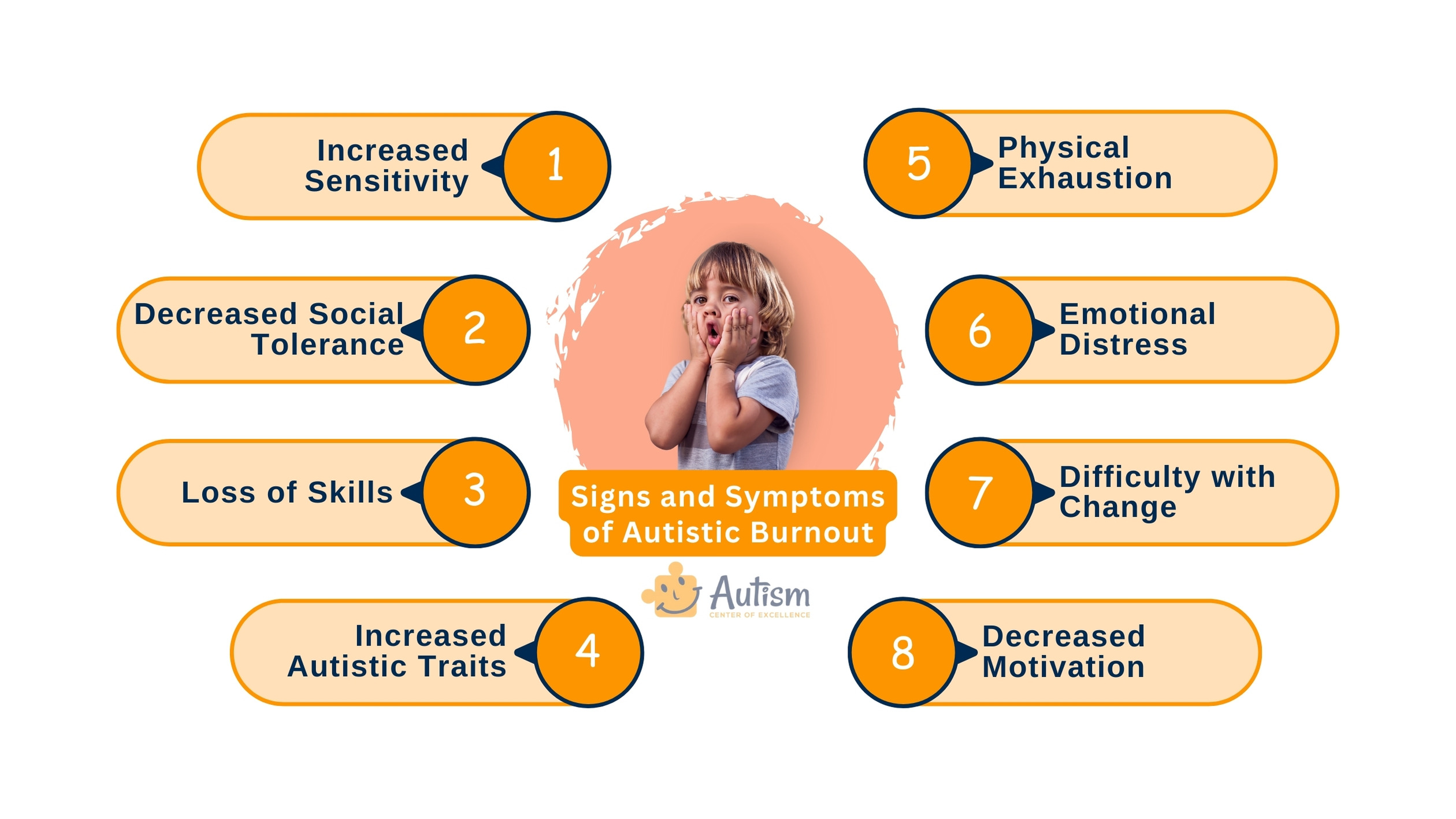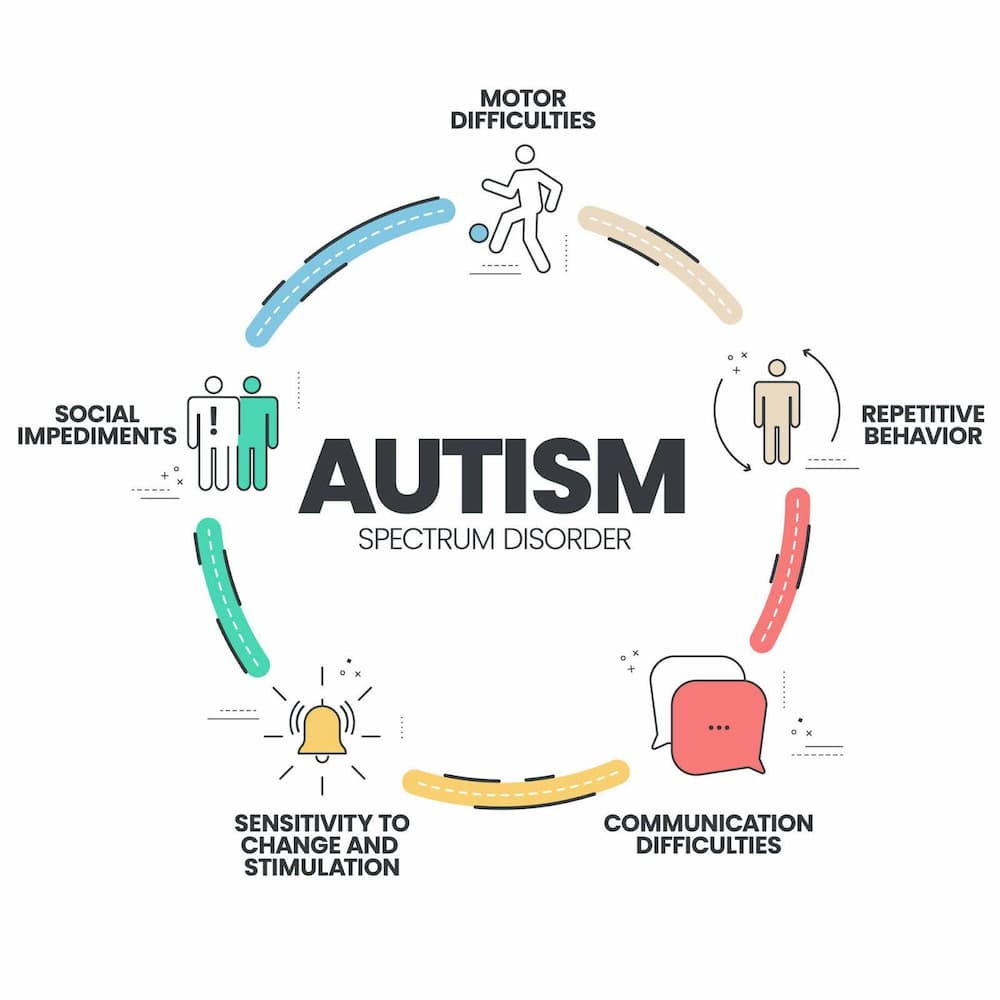What makes an effective Autism Behavioral Therapy
What makes an effective Autism Behavioral Therapy
Blog Article
Comprehending the Impact of Behavioral Autism on Day-to-day Live and Social Communications
You could not realize how deeply behavior autism affects everyday life and social interactions. Individuals on the range frequently browse a globe loaded with interaction difficulties and sensory overload. These obstacles can lead to disappointment and seclusion, impacting their partnerships and general wellness.
Defining Behavioral Autism and Its Attributes
Behavioral autism, commonly described as autism spectrum disorder (ASD), incorporates a range of conditions characterized by difficulties in social interaction, interaction, and recurring habits. You may discover that individuals with ASD usually struggle to translate social hints, which can bring about misconceptions in discussions. They might find it difficult to develop eye get in touch with or participate in little talk, making social circumstances feel overwhelming.
Communication difficulties can show up in numerous methods, from delayed speech growth to a choice for using less words. By recognizing these characteristics, you can foster an atmosphere that advertises approval and motivates reliable communication, helping people with autism flourish in their day-to-day communications.
The Spectrum of Autism: Recognizing Irregularity in Actions
Autism range problem (ASD) isn't a one-size-fits-all diagnosis; it differs widely amongst individuals. You may notice that some people with ASD display light signs, while others might encounter more substantial obstacles. This irregularity can materialize in habits, passions, and sensory level of sensitivities. You might encounter people that are highly verbal and engage quickly in discussions, while others may choose solitary activities or interact non-verbally.
Furthermore, the method individuals with ASD respond to sensory input can vary significantly; some might be overwhelmed by loud sounds or intense lights, whereas others flourish in stimulating atmospheres. The spectrum additionally consists of distinctions in social communications; some individuals may struggle to analyze social signs, while others navigate social settings with relative simplicity. Comprehending this variability is important, as it helps you appreciate each person's one-of-a-kind experience and dressmaker support to their particular requirements, cultivating a much more comprehensive setting for everyone.
Interaction Obstacles Dealt With by Individuals With Autism
When you engage with people on the autism spectrum, you may see their distinct interaction challenges. They typically encounter troubles with both verbal and nonverbal cues, which can affect their social interactions. Recognizing these obstacles is necessary for fostering better links and support.

Verbal Communication Troubles
Numerous people on the autism spectrum experience spoken interaction difficulties that can substantially affect their everyday communications. You may discover it challenging to reveal your ideas, feelings, or needs clearly. This can cause stress for both you and those around you, as misunderstandings happen. You might battle with starting conversations, keeping a topic, or recognizing nuances in speech. Commonly, you might choose making use of simple language or recurring expressions, which can limit your ability to participate in much deeper discussions. Your tone, pace, or volume may not straighten with social assumptions, creating others to misinterpret your intents. Identifying these difficulties can help you and your support network create approaches to boost communication and promote much better links with others in your life.
Nonverbal Communication Obstacles
Verbal communication isn't the only challenge people on the autism spectrum face; nonverbal communication obstacles can be equally as considerable. You may discover it challenging to interpret body movement, face expressions, and eye get in touch with, which are important for effective interaction. These obstacles can result in misunderstandings or false impressions of social hints, making interactions really feel overwhelming or complicated. You might have a hard time to express your very own emotions through nonverbal methods, leaving others uncertain of your objectives or feelings. This separate can produce sensations of seclusion and frustration. Acknowledging these barriers is vital for fostering understanding and empathy in your communications. By attending to nonverbal communication, you can locate techniques to boost your social experiences and enhance your total top quality of life.
Social Communication Influences
Social interactions can commonly really feel frustrating because of the distinct interaction challenges faced by individuals with autism. You could fight with analyzing social cues, making it hard to comprehend mockery or body language. This can lead to misconceptions or uncomfortable minutes in conversations. Furthermore, launching and preserving discussions might really feel challenging, causing stress and anxiety in social circumstances. You may like structured settings, making spontaneous communications unpleasant. It's likewise usual to experience problem in taking part in tiny talk, which can prevent developing new friendships. Identifying these challenges can help you locate strategies to enhance communication, such as practicing social abilities in safe settings or making use of visual help - Autism Spectrum Therapies. Recognizing your needs enables you to browse social communications with greater confidence and ease.
Social Communication and Relationship Building in Autism
While building partnerships can be testing for people with autism, understanding their special viewpoints and communication designs can foster purposeful links. You could observe that numerous individuals on the range choose straight communication and may fight with social hints or small talk. By being uncomplicated in your communications, you can help produce an environment where they really feel comfy.
Involving in shared passions can also offer as a bridge to much deeper links. Whether it's a pastime, a favored show, or a mutual enthusiasm, these typical threads can open up doors to relationship.
Every Day Life Regimen: Browsing Strategies and challenges
Navigating everyday life routines can be get more info particularly challenging for people with autism, especially when unforeseen modifications happen. To browse these challenges, think about carrying out aesthetic routines or checklists.
Developing a regimen that includes sensory breaks can also be valuable. This helps develop an understanding environment.
Last but not least, technique mindfulness techniques to manage anxiety and anxiety. Easy breathing exercises or basing techniques can make a considerable distinction. By integrating these techniques, you can boost your everyday routine and minimize disturbances, making life feel extra workable.
Toughness and Capacities of Individuals on the Autism Range
Recognizing daily life routines is simply one facet of the autism experience. Many people on the autism spectrum have exceptional toughness and abilities that set them apart.
Moreover, here your memory abilities frequently radiate, specifically in locations of interest. Aba Therapist Near Me. This knack for retaining information can make you a valuable resource in areas like innovation, scientific research, or art. You may additionally show solid aesthetic reasoning, enabling you to visualize complex ideas and fix problems artistically
In addition, your special perspective on the globe can cultivate compassion and understanding in others, improving social interactions. Embracing these toughness not only enhances your confidence however also assists others value the diverse abilities you give the table.
Creating Inclusive Settings for Individuals With Autism
Developing comprehensive environments for individuals with autism begins with creating sensory-friendly rooms that accommodate their one-of-a-kind needs. You can also cultivate opportunities for social communication, assisting to construct friendships and connections. By making these adjustments, you'll add to a more welcoming ambience for everyone.
Creating Sensory-Friendly Spaces
While creating sensory-friendly spaces, it's important to mirror on the one-of-a-kind needs of individuals with autism. Include silent zones where people can recharge and retreat when overwhelmed. Consist of aesthetic timetables or clear signage to help individuals browse the space with confidence.
Promoting Social Interaction Opportunities
Creating sensory-friendly rooms not only addresses individual comfort yet additionally establishes the phase for purposeful social communications among individuals with autism. Encourage peer mentoring, matching people with autism with helpful peers that can lead them with social situations. By applying these techniques, you can enhance social chances, helping people with autism here develop relationships and strengthen their social abilities in a safe, welcoming environment.

Regularly Asked Concerns
Exactly How Can Pals Assistance Somebody With Behavioral Autism?
You can sustain a pal with behavioral autism by holding your horses, paying attention proactively, and appreciating their limits. Engage in activities they delight in, communicate honestly, and produce a comfortable setting where they feel valued and comprehended.
What Resources Are Available for Moms And Dads of Kid With Autism?
You can discover numerous sources for parents of kids with autism, consisting of support system, educational web sites, and regional community services. Getting in touch with various other parents can likewise provide valuable insights and shared experiences to aid navigate difficulties.
Can Behavioral Autism Adjustment Gradually?

Yes, behavior autism can alter in time. You could notice shifts in interaction, social abilities, and actions as your kid grows. Early intervention and assistance often play essential functions in these developmental changes.
Exactly How Do Sensory Level Of Sensitivities Influence Life?
Sensory level of sensitivities can make everyday experiences overwhelming. You could have problem with loud sounds or intense lights, leading to tension or avoidance. Finding atmospheres that suit your requirements can considerably boost your comfort and general day-to-day live.
What Are Typical Misconceptions Concerning Behavioral Autism?
You may think behavioral autism only impacts communication abilities, yet it's even more complex. Many assume individuals do not have empathy or knowledge, which isn't real. Comprehending these misunderstandings assists foster approval and support for those on the range.
Behavior autism, commonly referred to as autism spectrum condition (ASD), incorporates an array of problems defined by obstacles in social communication, communication, and repetitive behaviors.Social communications can often feel overwhelming due to the special interaction obstacles faced by individuals with autism.Creating sensory-friendly rooms not only addresses private convenience however likewise establishes the stage for meaningful social communications amongst people with autism. Urge peer mentoring, matching individuals with autism with helpful peers who can guide them with social circumstances. By carrying out these techniques, you can improve social chances, helping individuals with autism develop relationships and enhance their social abilities in a secure, welcoming atmosphere.
Report this page